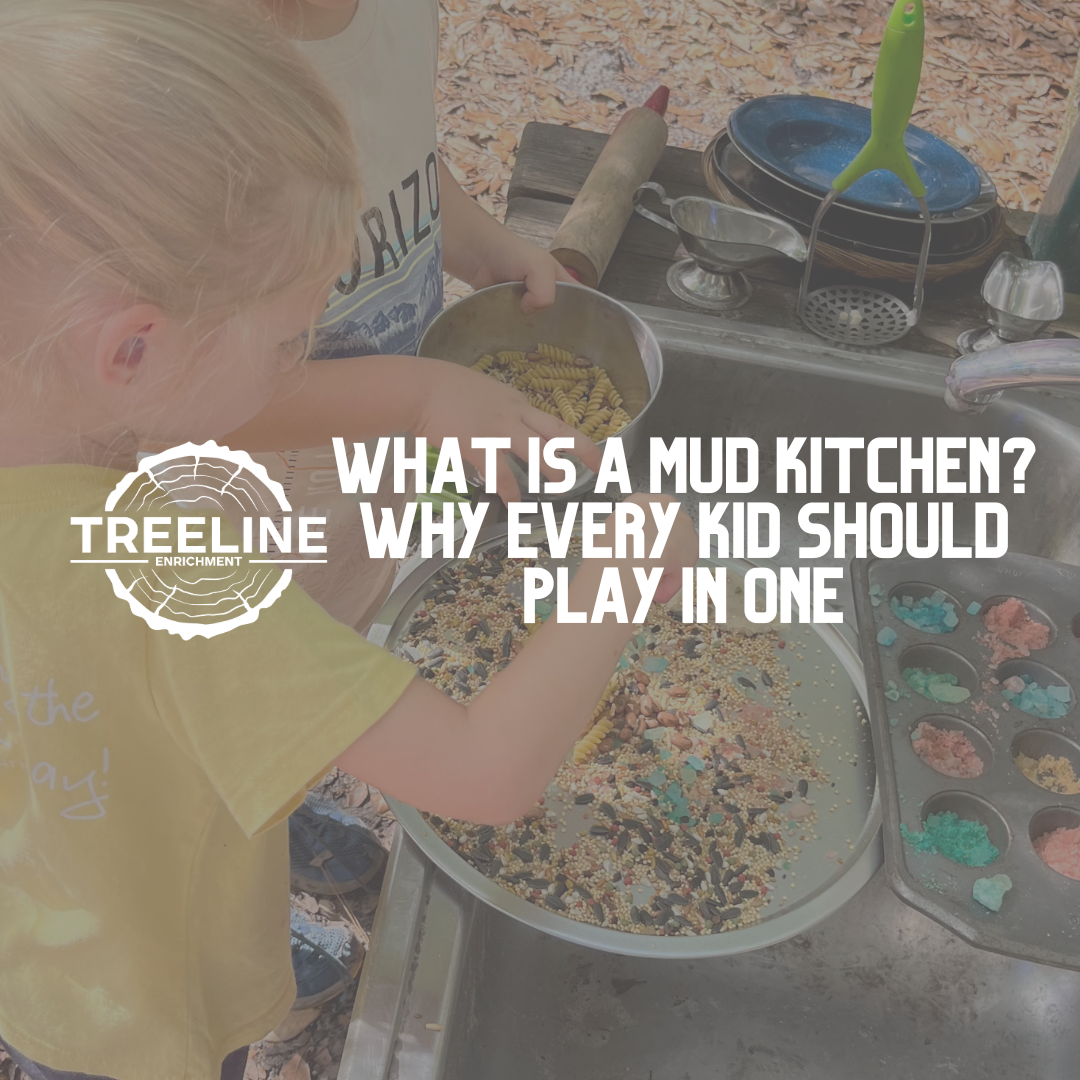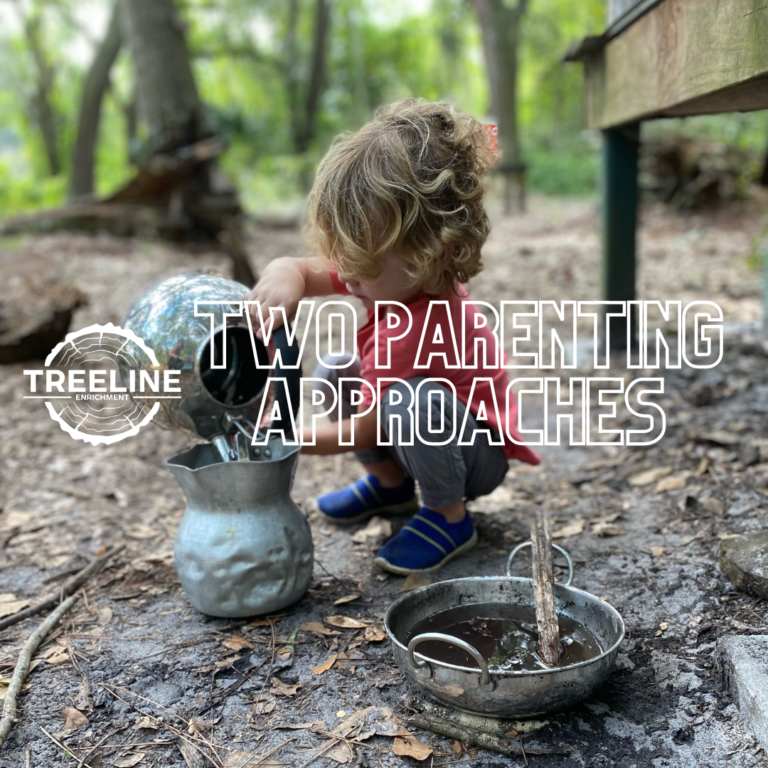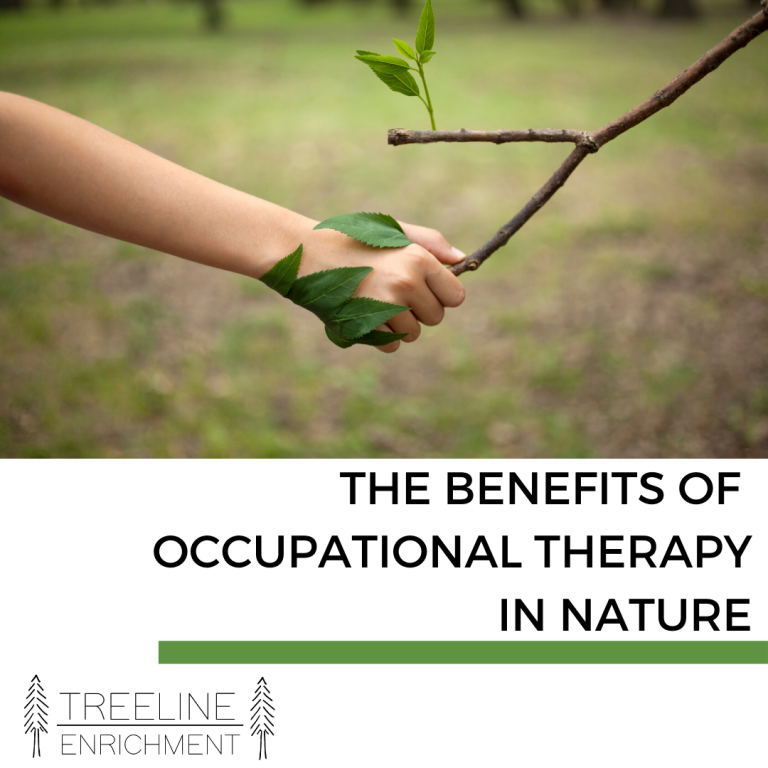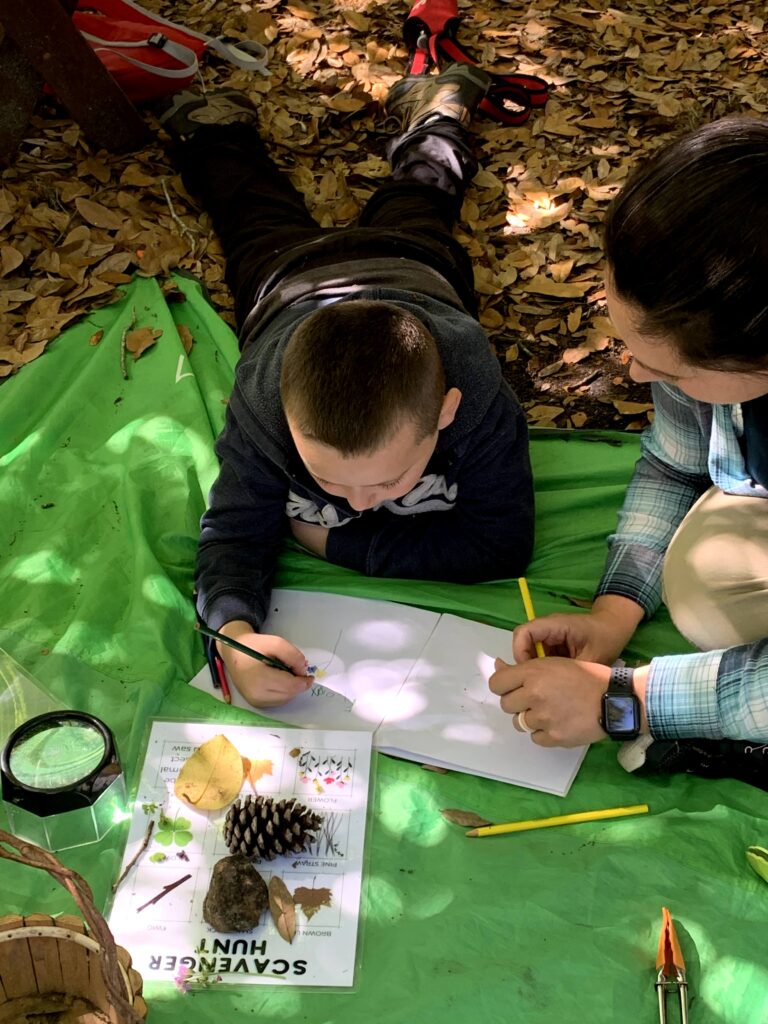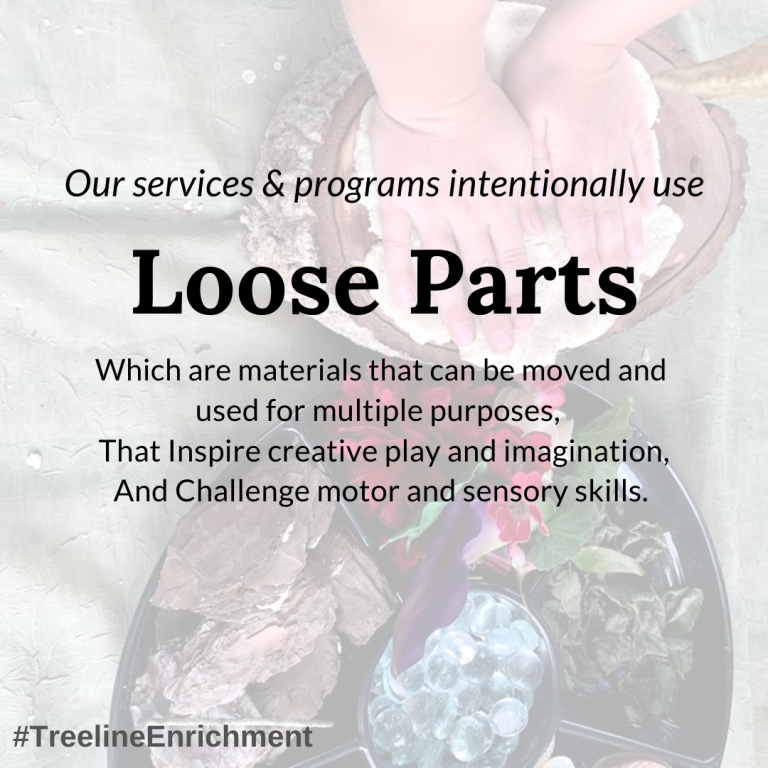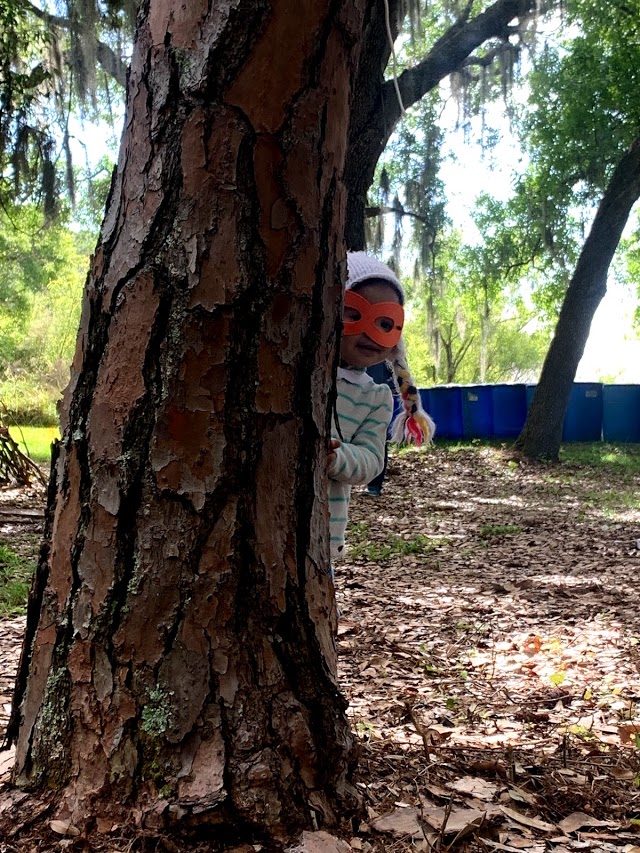What is a Mud Kitchen? Why Every Kid Should Play in One
Rediscover the Joy of Messy Play
Mud kitchens might sound like a simple childhood pastime, but they hold incredible potential for your child’s development. If the idea of your child getting muddy makes you cringe, you’re not alone—many parents feel hesitant about messy play. But what if you knew that playing in the dirt could spark creativity, foster critical life skills, and even support your child’s health?
At Treeline, we’ve seen firsthand how mud kitchens transform outdoor play into meaningful, joyful learning experiences. By the end of this blog, you’ll understand why getting messy might just be the best thing for your child—and how our Mud Kitchen Play Days can help them thrive.
What is a Mud Kitchen?
A mud kitchen is an outdoor play area where kids can mix mud, water, leaves, and other natural materials to create pretend meals, concoctions, and more. Equipped with child-sized pots, pans, and utensils, mud kitchens are all about hands-on, open-ended play.
This isn’t about following recipes or keeping things tidy—mud kitchens celebrate experimentation and creativity. Whether your child is “baking” mud pies, stirring a leaf soup, or serving up pinecone pancakes, they’re engaging their imagination, problem-solving skills, and love of discovery.
Mud kitchens are becoming increasingly popular with families looking for outdoor sensory play ideas that support child development. The best part? They’re simple to set up and endlessly engaging!
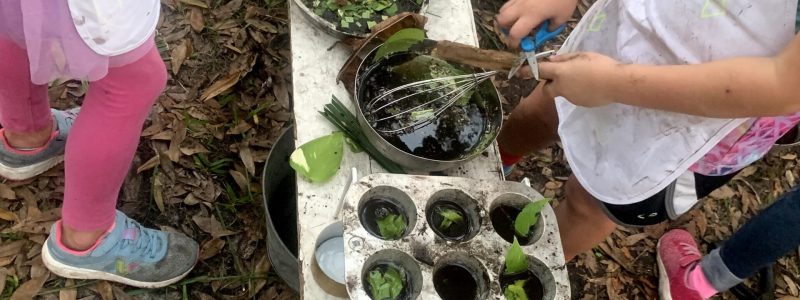
5 Benefits of Mud Play for Kids: Why Dirt is Great for Development

1. Encourages Creativity and Imagination
When your child steps into a mud kitchen, they enter a world of endless possibilities. With no rules to follow, they’re free to invent games, create pretend meals, and imagine scenarios that expand their creativity and storytelling skills.
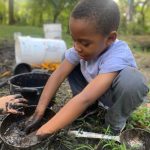
2. Supports Sensory Development
Mud play is rich in sensory experiences. The squishy feel of wet mud, the gritty texture of dry dirt, and the sound of splashing water engage your child’s senses in ways that support sensory processing. This is especially valuable for children with sensory differences who benefit from tactile exploration in a safe, fun setting.
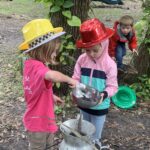
3. Builds Social and Communication Skills
Mud kitchens are a fantastic space for collaborative play. Children can create “restaurants,” take turns “cooking,” and serve dishes to friends. These interactions promote teamwork, communication, and social confidence in a relaxed, playful environment.
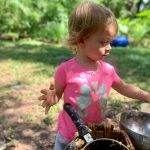
4. Develops Motor Skills
From scooping mud to pouring water, every action in a mud kitchen strengthens motor skills. Gross motor skills are honed when children carry buckets or dig in the dirt, while fine motor skills are sharpened through stirring, pinching, and pouring. These skills are essential for tasks like writing and self-care.

5. Boosts Problem-Solving and Critical Thinking
Mud kitchens naturally encourage problem-solving. What happens when you add too much water? How do you serve “soup” in a leaf bowl? These small challenges teach kids to experiment, adapt, and think critically—skills that translate to real-world situations.
The Health Benefits of Playing in the Dirt
Worried about your child getting dirty? It turns out that dirt is good for them! Research shows that exposure to soil introduces beneficial microbes that strengthen the immune system and reduce the risk of allergies and autoimmune conditions later in life (Rook, 2010).
Mud play also gets children outdoors, where they benefit from fresh air, movement, and natural light. Outdoor play has been linked to improved mood, better focus, and lower stress levels (Hanscom, 2016). So, the next time you see muddy hands or a dirt-streaked smile, take comfort in knowing that your child’s immune system and mental well-being are getting a boost!
How to Enjoy Messy Mud Play Without Stressing Over Cleanup
Messy play doesn’t have to mean a messy house! Here are some tips to embrace the joy of mud kitchens while keeping the mess under control:
- Set Boundaries: Create a designated area for mud play in the backyard or a park.
- Dress for Success: Use old clothes, rain boots, or waterproof gear to make cleanup easier.
- Plan for Cleanup: Keep a hose, towels, or a bin of water nearby for quick rinsing before coming inside.
- Start Small: Introduce dry dirt or small amounts of water if you’re nervous about messes, and gradually build up to full mud play.
- Join the Fun: Playing alongside your child can make messy play feel more manageable—and more enjoyable!
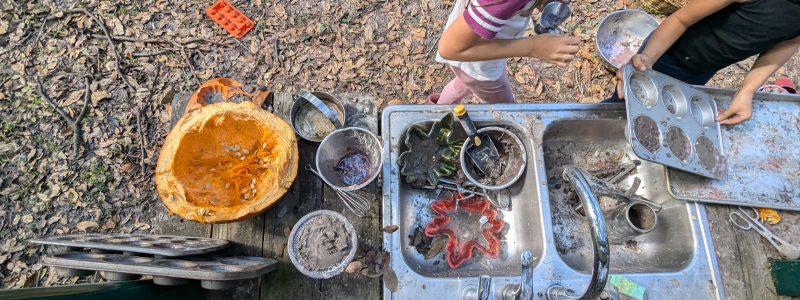
Mud Kitchens at Treeline: A Place to Play, Learn, and Grow
At Treeline, we love seeing the joy and growth that comes from mud play. Our Mud Kitchen Play Days are designed to give your child all the benefits of messy play in a supportive outdoor environment.
During these sessions, kids dive into imaginative mud play, connect with peers, and explore sensory-rich experiences that support their development. And the best part? We handle the setup and cleanup, so you don’t have to!
Ready to let your child experience the magic of mud? Join us for one of our Mud Kitchen Play Days and see the benefits for yourself! Click here to learn more & to sign up!
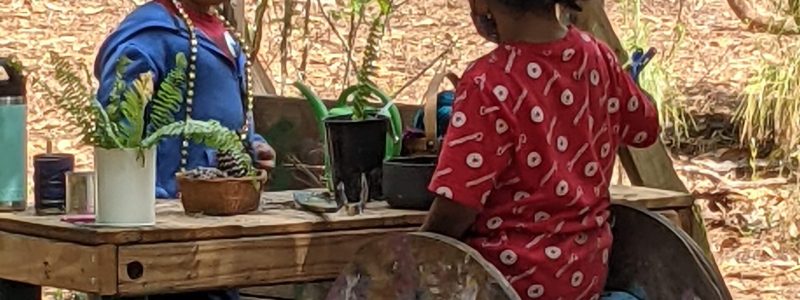
FAQs About Mud Play
Yes! Research shows that playing in the dirt strengthens the immune system and supports overall health. Just make sure the play area is free from harmful substances like pesticides or animal waste.
All you need is a designated outdoor area, some old kitchen tools or utensils, and natural materials like mud, water, sticks, and leaves.
Mud play offers a gentle, tactile experience that can help children explore new textures and sensations at their own pace, supporting sensory regulation and comfort.
References
- Hanscom, A. (2016). Balanced and Barefoot: How Unrestricted Outdoor Play Makes for Strong, Confident, and Capable Children.
- Louv, R. (2008). Last Child in the Woods: Saving Our Children from Nature-Deficit Disorder.
- Rook, G. A. (2010). “Regulation of the immune system by biodiversity from the natural environment: An ecosystem service essential to health.” Proceedings of the National Academy of Sciences.
- Gray, P. (2013). Free to Learn: Why Unleashing the Instinct to Play Will Make Our Children Happier, More Self-Reliant, and Better Students for Life.
Note: This blog post was thoughtfully crafted with the assistance of AI technology to ensure high-quality, engaging, and informative content. The ideas, experiences, and perspectives shared reflect the values and expertise of Treeline Enrichment. AI served as a tool to organize and enhance the information, but all final edits and approvals were made by our team to ensure alignment with our mission and voice.

